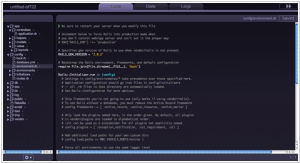Cloud Foundry vs Heroku
August 19, 2023 | Author: Michael Stromann
9
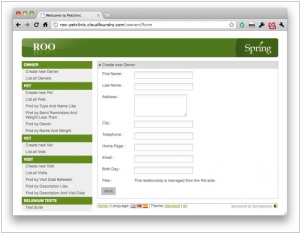
Open Source Cloud Application Platform that makes it faster and easier to build, test, deploy and scale applications, providing a choice of clouds, developer frameworks, and application services. It is an open source project and is available through a variety of private cloud distributions and public cloud instances.
Cloud Foundry and Heroku are both cloud computing platforms, but they differ in their focus, target audience, and deployment options. Cloud Foundry is an open-source platform-as-a-service (PaaS) solution that provides a flexible and scalable environment for deploying and managing applications. It offers a high level of control and supports multiple programming languages and frameworks. Cloud Foundry allows developers to deploy applications on multiple cloud providers or on-premises infrastructure. On the other hand, Heroku is a fully managed PaaS solution that simplifies the deployment and management of web applications. It offers a streamlined development experience, automated scaling, and seamless integration with popular programming languages and frameworks. Heroku abstracts away infrastructure concerns, allowing developers to focus solely on building and deploying applications. Heroku is popular among developers and small to medium-sized businesses looking for an easy-to-use platform without worrying about infrastructure management.
See also: Top 10 Public Cloud Platforms
See also: Top 10 Public Cloud Platforms
Cloud Foundry vs Heroku in our news:
2017. Cloud Foundry adds native Kubernetes support
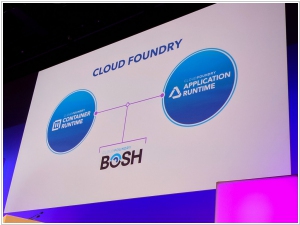
Cloud Foundry, the open-source platform as a service (PaaS) offering for enterprise, made an early commitment to Docker containers. However, with the introduction of Kubo, a tool donated to the project by Pivotal and Google last year, Cloud Foundry gained a new capability to rapidly deploy and manage a Kubernetes cluster. Kubernetes, an open-source container orchestration tool backed by Google and emerging as the industry standard for container management, is now an integral part of the Cloud Foundry platform under the new name "Cloud Foundry Container Runtime." The collaboration between Google, Pivotal, and Cloud Foundry in developing this integration comes as no surprise.
2015. Heroku launches application development platform for Enterprise
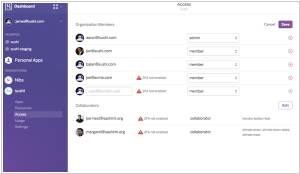
Heroku, the application development and hosting platform owned by Salesforce, has introduced a new offering known as Heroku Enterprise. This product line specifically targets large companies aiming to develop modern applications similar to those found in startups, while also providing the security features and access control often sought by enterprises. Essentially, Heroku Enterprise claims to offer the best of both worlds by enabling large enterprises to create agile-developed applications utilizing cutting-edge technologies like containers and new database services, all while adhering to the stringent governance requirements of the enterprise environment. It's an ambitious goal, and if Heroku successfully accomplishes it, they deserve commendation. With Heroku Enterprise, organizations can now effectively monitor all their developers, applications, and resources through a unified interface, streamlining their management processes.
2014. Salesforce connects Heroku to its cloud
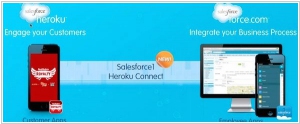
After acquiring the Heroku cloud application platform in 2010, Salesforce has finally established a connection between Heroku and Force.com through the introduction of the Heroku Connect tool. Although Heroku and Force.com are built on different development systems with distinct programming languages, Salesforce has successfully established a functional bi-directional link between them. This connection eliminates the need for extensive recoding, which can be both expensive and time-consuming, allowing Salesforce customers to effortlessly connect their Heroku apps to the Salesforce ecosystem. Salesforce recognizes the importance of showcasing tools like Heroku Connect to attract developers and assure them that Force.com seamlessly integrates with popular web toolkits like Node.js, Ruby on Rails, and Java.
2012. Top 7 Dreamforce stories
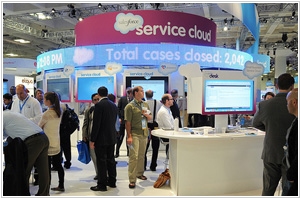
At the Dreamforce 12 conference Salesforce presented a lot of new products, but the problem is that most of these new products either had been already presented at the conference last year, or will become live to next year's conference. So, we'll just briefly go over the main ones: ***
2012. Surprise! VMWare has joined OpenStack
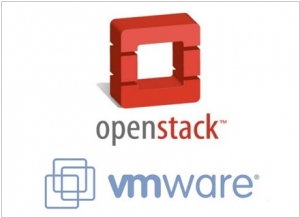
Recently we found out that the open cloud platform alliance OpenStack includes several members from EMC. It was a surprise, because EMC owns VMWare - the direct competitor of OpenStack. We thought that it was a little misunderstanding in the Swedish family EMC-VMWare. But this wasn't the last surprise in this story. In the end of the last week, VMWare personally became the "Gold member" in OpenStack. (Recall, OpenStack was founded two years ago in order to struggle against the dominance of Amazons's public cloud and VMWare's data-center cloud management systems). Together with VMWare two more giants: Intel and NEC joined OpenStack on Friday. So now, on the cloud platform market we have the confrontation: Amazon vs "Everyone else". You may think that the forces are not equal, but ... ***
2011. SaaS vendors using third-party PaaS as their own

An interesting new trend is emerging: SaaS vendors start to use third-party PaaS services as platforms for their own clients and partners. Let's first consider the ordinary situation. For example, there was such SaaS provider as Salesforce. And it provided the online CRM system. The system was growing but the customers wanted more and more new features. Then Salesforce management thought: "we can't implement so many features, and it's not right to make the system too complicated. Let's better create a (PaaS) platform, and let our customers and partners create add-on apps and functions themselves. That's how Force.com appeared. And many others SaaS vendors headed the same way: Google, NetSuite, Intuit, Box.net ... But not all SaaS-providers are so mighty to create own PaaS platform. Or maybe creating own PaaS-platform - is not the smartest option. Why not use one of the existing PaaS-services, such as Force.com? ***
2011. VMware wants to revolutionize PaaS market
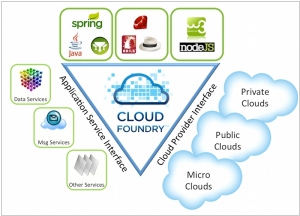
We have already noted that PaaS (Platform as a Service) - is the future of cloud platforms. For now the PaaS market is dominated by Salesforce (Force.com), Microsoft (Windows Azure) and Google (Google App Engine). Recently Amazon also entered this space with AWS Elastic Beanstalk. Of course VMWare also has its own plans regarding this market. Like Amazon, VMWare still paid more attention to another cloud technology - IaaS (Infrastructure as a Service). Its product vCloud enables service providers and enterprises to create cloud platforms that mimic Amazon EC2. But, frankly speaking, VMWare hasn't achieved great success in the IaaS-space so far, because it didn't offer something revolutionary. Having analyzed these mistakes, the company is now entering the PaaS market. And here it really wants to make a revolution. ***
2010. Force.com 2 - already 5 PaaS platfroms
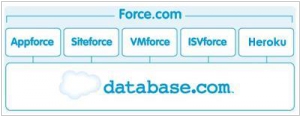
At the Dreamforce conference, Salesforce demonstrated one more time that now it's not so interested in CRM (it was mainly a subject for jokes) as in cloud platforms. Following the release of SaaS database Database.com, the company introduced another big Force.com feature - Heroku - the PaaS startup that Salesforce has recently acquired for $ 212 million. Heroku - is a cloud platform for developing and hosting Ruby-applications (Ruby - is a popular framework for developing Web apps, created by 37Signals). Heroku became one of the five PaaS-services included in the new version Force.com 2. And the new structure of the Force.com platform now looks like this: ***

